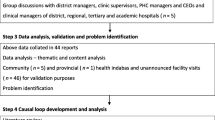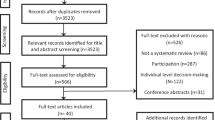Abstract
With this paper it was tried to give a broad perspective about the responsiveness level of Turkish health care system, and how Turkish health care system meets the expectations of its citizens. For achieving the main purpose of this study a sample of hospital managers (n = 172) was selected, and the responsiveness questionnaire developed by WHO was administered. If the responsiveness level of Turkish health care system is measured on the basis of the Turkish hospital managers’ views in the sample by using the weights reported in the World Health Report 2000, responsiveness level is calculated as 6.14, and Turkey's place should be 35 rather than 93 among 191 countries. The findings showed that Turkish health care system met confidentiality expectations of Turkish citizens better than other expectations for other aspects of responsiveness. In light of the main results of this study we conclude that the economic status, demographic structure, culture, and some other regional and country-specific factors should be taken into account by calculating and especially ranking the countries according to responsiveness level of their health care systems, and each country should carry out this kind of studies by using the views of their own key informants or preferably citizens, if possible.
Similar content being viewed by others
References
World Health Organization, European Regional Consultation on Health System Performance Assessment, Geneva, 2001.
Silva, A., A framework for measuring responsiveness. GPE Discussion Paper Series, No. 32, WHO,Geneva, 2000.
Darby, C., Valentine, N., Murray, C. J. L., and Silva, A., WHO: Strategy on measuring responsiveness. GPE Discussion Paper Series, No. 23, WHO, Geneva, WHO, 2000.
Silva, A., and Valentine, N., Measuring responsiveness: Results of a key informants survey in 35 countries. GPE Discussion Paper Series, No. 21, WHO, Geneva, 2000.
World Health Organization, World Health Report 2000: Health Systems-Improving Performance, Geneva, Switzerland, 2000.
Rylance, G., Privacy, dignity, and confidentiality: Interview study with structured questionnaire. BMJ 318:301, 1999.
Gakidou, E., Murray, C. J. L., and Frenk, J., Measuring preferences on health system performance assessment. GPE Discussion Paper Series, No. 20, WHO, Geneva, 2000.
Murray, C. J. L., and Frenk, J. A., Framework for assessing the performance of health systems. Bull. WHO 78(6):717–731, 2000.
Valentine, N. B., Silva, A., and Murray, C. J. L., Estimating responsiveness level and distribution for 191 countries: Methods and results. GPE Discussion Paper Series, No. 22, WHO, Geneva, 2000.
World Health Organization, A Quick Reference Compendium of Selected Key Terms Used in the World Health Report 2000, Geneva, 2000.
Blendon, R. J., Kim, M., and Benson, J. M., The public versus the World Health Organization on health system performance. Health Affairs 20(3):10–20, 2001.
Ugá, A. D., Almeida, C. M., Szwarcwald, C. L.,et al., Considerations on methodology used in the WHO 2000 Report. Cad. Saude Publica, Rio de Janeiro 17(3):705–712, 2001.
Nord, E., Measures of goal attainment and performance in the World Health Report 2000: A brief, critical consumer guide. Health Policy 59:183–191, 2002.
Navarro, V., Assessment of the World Health Report 2000. Lancet 356(4):1598–1601, 2000.
Aalto, A. M., Measuring the responsiveness of health care system in the World Health Report 2000, The World Health Report 2000, What does it tell about health systems? Analyses by Finnish experts, National Research and Development Centre for Welfare and Health (Stakes), Helsinki, Finland, 2000.
Almeida, C., Braveman, P., Gold, M. R., et al., Methodological concerns and recommendations on policy consequences of the World Health Report 2000. Lancet 357(26):1692–1697, 2001.
The Institute for Health Sector Development, World Health Report 2000—Summary and Comments, London, 2000.
Navarro, V., Can health care systems be compared using a single measure of performance. Am. J. Public Health 92(1):31–34, 2002.
Mulligan, J., Appleby, J., and Harrison, A., Measuring the performance of health systems. BMJ 321:191–192, 2000.
McKee, M., Measuring efficiency of health systems. BMJ 323:295–296, 2001.
McCallum, L., Responsiveness of the Australian Health System. Consumers’ Health Forum Australia. AIHW Workshop on the WHO World Health Report, Canberra, 2000.
Pan American Health Organization, Work group of the region of Americas on health systems performance assessment, Report of the Meeting, Ottawa, Canada, September 4–6, 2001.
The Institute for Health Sector Development, Improving health systems by measuring health status: Is WHO serious?, An IHSD Issues Note, 2000.
Author information
Authors and Affiliations
Corresponding author
Rights and permissions
About this article
Cite this article
Ugurluoglu, O., Celik, Y. How Responsive Turkish Health Care System Is to Its Citizens: The Views of Hospital Managers. J Med Syst 30, 421–428 (2006). https://doi.org/10.1007/s10916-005-9006-8
Received:
Accepted:
Published:
Issue Date:
DOI: https://doi.org/10.1007/s10916-005-9006-8




